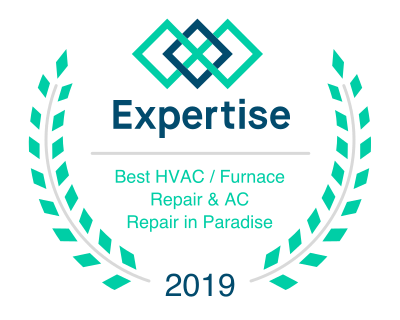If you’re wondering whether or not you should get a residential or commercial HVAC system, the answer is yes. However, there are distinct differences between the two, having different factors to consider like efficiency, capacity, warranty, lifespan, meaning you should consider your needs before deciding on one over the other which can include thermostats, filters, zoning, controls, airflow, and ventilation.
In this article, we’ll talk about the cost difference between residential vs. commercial HVAC systems and how much more expensive one might be than another. We’ll also discuss how the capacity and efficiency of each type of system work and compare them side-by-side using parameters such as thermostats control, airflow, and ventilation, so that you can decide what kind of unit would be best for your home or office.
Are you thinking about replacing your HVAC unit? If so, you might wonder what the cost difference between residential and commercial models is, along with disparities in other features like warranty and lifespan. We’re happy to tell you that it’s not as big of a difference as you might think!
Residential HVAC units are designed to keep a smaller space at an ideal temperature. They often have fewer bells and whistles than commercial units, but they’re also much more affordable. Commercial HVAC units, on the other hand, are designed to keep larger spaces, like offices, factories, or warehouses, at an ideal temperature. They have ventilation and airflow controls, as well as zoning possibilities, which are more sophisticated than residential units but also increase their overall cost.
Here’s what makes up each type of unit:
- Residential: These units tend to be smaller than commercial ones, making them easier to install in tight spaces like basements and attics. They also tend to operate more quietly than their commercial counterparts because they don’t have as many fans or blowers inside them. This makes them perfect for homes that need air conditioning but don’t want the noise!
- Commercial: These units tend to be much bigger than residential models because they need more power and, therefore, more money and noise.
The Cost Difference Between Residential and Commercial HVAC
You might have run into AC problems at home, but a business or commercial property is another story. If you need to repair your commercial HVAC, consider using your experiences with your residential unit as a reference point. Since they both control airflow and offer different kinds of thermostats and filters. While both residential and commercial HVAC units operate on the same principles and share many similarities, commercial units have some key differences that make them more than just bigger versions of the AC in your house due to their greater capacity and distinct zoning controls.
Once you know the differences between the two, including their lifespan and warranty, you’ll be able to find a qualified professional to get the HVAC for your business up and running again.
The cost difference between residential and commercial HVAC is significant, with both having different efficiency levels and capacity. For example, a commercial HVAC system’s average annual operating cost is over $2,500, while residential systems will cost about $1,000.
The main reason is that commercial systems are built to handle more equipment, which requires more energy and regular maintenance. They have professional ventilation and airflow controls, and their warranty and lifespan factors also differentiate them. In addition, residential systems are typically designed to be economical and easy to use. On the other hand, commercial systems tend to be larger and require more specialized care.
Commercial HVAC units are designed to cool buildings far larger than the typical home, which requires different zoning regulations and a radically different approach than residential HVAC units when considering ventilation and airflow, leading to higher maintenance costs.
Size
Since commercial HVAC is used to cool more square footage, units tend to be far larger than their residential counterparts. Some of their components like filters, zoning controls, and thermostats, are entirely different from residential HVACs. They also have greater variability in size since residential units come in standardized sizes while commercial units are often custom-built for their building.
Location
Residential HVAC units tend to be positioned on ground level outside the home, while commercial units are usually located on the roof. With commercial units, their position on the roof allows for enhanced airflow and ventilation and also allows technicians to work on them without disturbing the normal operations of a business.
Home Advisor reports that homeowners spend an average of $336 on each HVAC repair, with most spending between $163 to $520. Of course, these costs depend on various factors such as warranty lifespan and efficiency level but also consider the specifics of thermostats control, filters handling, and zoning techniques.
However, this can vary widely depending on your home’s location, your chosen company, and the time of year. Nevertheless, given the standardization of residential units regarding airflow and ventilation, it can make sense to look at averages when planning for future expenses.
- the specific problem
- the brand and type of HVAC unit
Commercial heating and cooling systems have much greater variability than residential systems when it comes to efficiency, lifespan, warranty, air controls, and ventilation. Therefore, for commercial HVAC, it’s more helpful to think of a system for estimating costs rather than an average.
For example, it can be helpful to think of the service contract your HVAC technician is offering and then divide that amount by various factors. This approach can help you better comprehend the efficiency, lifespan, warranty, thermostats, filters, zoning controls, airflow, and ventilation of your residential or commercial HVAC.
Given the specialized knowledge and the complexity required to repair commercial HVAC systems, which might involve issues such as insulation problems or compressor difficulties, the labor cost may be greater than what you would expect for a commercial repair. Business owners may find this surprising, especially with an experienced team. On the other hand, you can take advantage of tax credits which can defray the maintenance cost. Plus, professionals can spot areas prone to moisture retention which is not good for your HVAC service.
- the hours they intend to work
- the number of visits
- the number of parts they will be servicing
Residential AC is easier to set up because it is a one-time installation. Yet it is important to consider that every HVAC company can provide a different experience, ensuring that the system installation is correctly done.
Residential Air Conditioning Is Easier to Set Up
Residential requires:
The most obvious difference between residential and commercial AC is that residential systems are smaller and don’t require as much electricity as commercial ones. They also don’t need as much space or have as many components. However, under certain conditions, a residential system might need to endure complexity similar to its commercial counterpart.
- less equipment
- less installation time
- less maintenance
Commercial air conditioning systems are often more complex than residential ones, consisting of more components. Commercial HVAC systems are designed to meet the needs of many customers using them at once. This means they must handle a lot more stress than a residential unit, even the compressor, which is critical for the AC’s functionality, must be more robust.
Residential AC units are known to last longer than commercial HVAC units because they are not used as often and are not subjected to the same stress as commercial HVAC units. Residential air conditioners are only used during pleasant weather or when the house or apartment is being occupied. Commercial HVAC units, on the other hand, must run all day long, ensuring that specific areas of the business premises are adequately cooled, irrespective of whether someone is in the building or not.
The common features of residential and commercial HVAC systems are:
Common Features of Commercial and Residential Heating and Air Conditioning Units
However, there are also major differences between residential and commercial HVAC systems.
- They both need to be able to heat, cool, or dehumidify the air in the room
- They both need to be able to control the temperature
- Their HVAC systems use ductwork to distribute air throughout a building. The ductwork can be used to move air through a home or office building. It used to move air from one part of the building to another
- They use fans to ensure that air is being moved through the system properly
- They rely on a central system that distributes hot or cool air throughout the building. The central system is powered by electricity, typically generated from fossil fuels like coal, natural gas, or oil. However, some newer systems use renewable energy sources like solar panels and wind turbines
Differences Between Residential and Commercial HVAC
For example:
Residential and commercial buildings are different types of structures that serve different purposes. Any reputable HVAC company must take these differences into account when evaluating the needs of the buildings to provide the best service for both individual homes and business owners.
- Residential HVAC systems are usually installed in homes or apartment buildings, while commercial HVAC systems are usually installed in office buildings or factories
- Residential HVAC systems tend to be less powerful than commercial ones because most homes have fewer rooms than businesses.
- Residential HVAC systems also tend to be more compact than commercial ones because they must fit into small spaces such as attics or basements where there may not be enough room for a large machine
Residential buildings are for occupants who live in them, and commercial buildings are for businesses that want to sell their products or services to the public. Whether it’s the homeowner’s comfort or the business owners wanting to ensure their premises is cool for customers, HVAC plays a big role.
There are several reasons why commercial HVAC is higher.
- Residential buildings are usually smaller than commercial buildings and are usually used for living. They may have one or more stories, but they do not have any shops or offices. Residential buildings can be single-family homes or apartments.
- Commercial buildings may be used for the same purposes as residential buildings but include stores, offices, and other businesses. Commercial buildings usually have more than one story and may even be several stories tall.
What’s the Difference in Cost Between the Two?
Commercial HVAC systems are more expensive than residential systems, but it’s not just because they’re bigger and have more areas to cover and cool. It might also come down to the complexity of the system, insulation procedure, the quality of the compressor and the experience required to install and manage such systems.
- First, the equipment isn’t just bigger, it’s more powerful. Commercial HVAC systems need to handle larger buildings and higher volumes of air, which means they use more energy and burn through parts more quickly.
- Second, commercial HVAC systems are designed to run on a much larger scale.
- Third, commercial HVAC equipment is built with durability in mind, which means it’s built to last! As a business owner, this can mean paying more upfront for the initial purchase price, but it also means that your system won’t need a replacement for years or even decades after installation.
A commercial HVAC is much more complex than its residential counterpart, so to navigate the complexity, business owners must seek a qualified professional. You want someone who is experienced with repairing each component of the system, from dealing with insulation issues to fixing or replacing a faulty compressor.
- First, commercial buildings require a higher level of service, meaning they have to be inspected and maintained more often. That can add up in cost over time.
- Second, residential homes have less stringent requirements when it comes to air quality and temperature. However, commercial buildings need to meet specific standards for both of these things, which means the equipment must be more powerful and durable to deliver that quality consistently.
- Third, a lot of specialized training is involved in installing commercial HVAC systems, which means you’ll pay more for installation services than you would for residential work.
Getting the Type of HVAC System that is Designed for Your Needs
You can reduce costs by regularly maintaining your HVAC system. Most HVAC systems are designed to last anywhere from 15 to 20 years, and with the proper care, you can keep yours running for years. Maintenance will also include evaluating specific areas for insulation problems, moisture accumulation and assessing the performance of the compressor.
When it comes to HVAC, you probably think of your home first. After all, it’s where you live and possibly work. However, have you considered how your commercial HVAC system can save you money?
HVAC systems are designed to regulate the temperature in a given space so that it stays comfortable for people who spend time there. Commercial buildings often have more people than residential buildings and need more heating and cooling power. However, this can lead to higher energy bills if the equipment isn’t set up correctly. With The Cooling Company’s help, an experienced team of HVAC technicians, you can get the most out of your commercial HVAC service without breaking the bank on utility costs!
If you’re looking for a new HVAC system, you might wonder what the difference is between residential and commercial units. Well, there’s a lot to consider!
Residential units tend to be smaller than commercial ones, which means that they can’t heat, cool, and provide humidity control for a much larger commercial space. That’s why they’re usually installed in one room or a smaller area, like an apartment or a single-story home. Residential units are also designed to be more energy efficient than commercial ones because they don’t need as much power to run effectively.
That said, if you have a larger space that needs commercial heating or cooling and humidity control (like an office building), you should go with a commercial unit instead of a residential one.
If you want to ensure your HVAC installation will work for whatever kind of space you have before buying one, call The Cooling Company at 702.919.5082 today! Our team has the experience and the know-how to provide excellent service and ensure your compressor is working effectively, insulation is appropriately installed, and that your unit is safe from areas that might have trapped moisture.
If you want to ensure your HVAC installation will work for whatever kind of space you have before buying one, call The Cooling Company at 702.919.5082 today!












